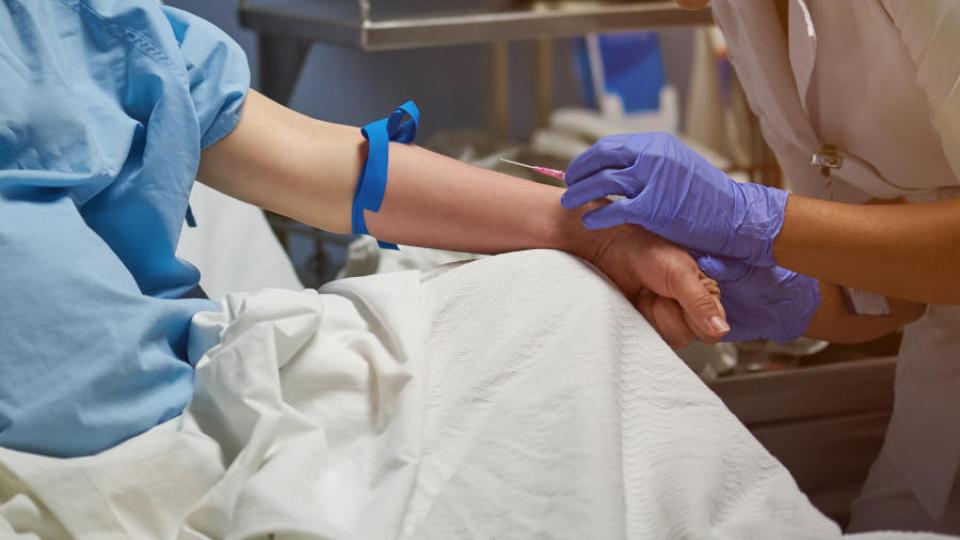
The Richard Wells Research Centre
Introduction
The Richard Wells Research Centre is a nurse-led interdisciplinary research group based at the University of West London. We conduct an active programme of research focusing on improving patient safety, which has impact on the delivery of better health and social care for individuals in a range of care settings.
The Centre undertakes primary research in the field of infection prevention and control and related areas of fundamental care. We are leaders in the development and updating of national guidelines related to infection prevention and control. As a JBI Centre of Excellence, we deliver accredited systematic review training and undertake systematic reviews to underpin primary research, practice guidelines and to inform national policy.
About the Richard Wells Centre
We form local, national and international multi-professional collaborative research and teaching networks with a variety of agencies, institutions, professional organisations and healthcare providers. We work with clinicians, academics, learned societies, patients, carers and the public to undertake and advise on research and healthcare educational initiatives. Our research spans traditional clinical environments and the care home sector.
Our Centre is named after Richard Wells FRCN, one of the UKs most outstanding nursing leaders of the past, whose focus on the needs of people in our care continues to inspire us today.
-
About Richard Wells RN FRCN 1950-1993
Our Centre is named after the late Richard Wells, our friend and colleague and one of the outstanding nursing leaders of our time.
Richard had a distinguished career in nursing at The Royal Marsden Hospital, where he held various positions, including Director of the Marie Curie Rehabilitation Centre. Richard was also a Consultant to a host of national and international organisations, including the World Health Organization, International Union Against Cancer, International Council of Nurses, European Oncology Society and the UK Departments of Health.
As the Oncology Nursing Adviser at the Royal College of Nursing, Richard was the major force in shaping a professional nursing response to the emerging epidemic of HIV infection and AIDS in the UK. In doing so, he inspired a generation of nurses and other healthcare professionals and supported the development of models of care for people with AIDS that are among the best in the world.
He was challenging, dynamic and warm and totally focused on ensuring that all patients, including those infected with HIV, received competent and compassionate non-judgemental care. Richard died in 1993 and is remembered with respect and affection throughout the United Kingdom. Because HIV infection and AIDS have been dominant themes in our research and international education programmes for many years, we wanted to remember and honour Richard’s contribution by naming our Centre after him.
Research projects
We undertake a wide range of pragmatic research:
-
The UWL Centre for Evidence-Based Healthcare - a JBI Centre of Excellence
The UWL Centre for Evidence-Based Healthcare works with healthcare practitioners from the acute and primary health care sectors to develop, implement and evaluate evidence to promote, support and sustain best practice.
-
Epic4: Guidelines for the prevention of healthcare-associated infections
The updating of the Epic3 guideline is being undertaken as a collaboration between two professional societies, the Healthcare Infection Society and the Infection Prevention Society, and the University of West London, commencing in March 2024.
-
Pandemic preparedness plans during COVID-19
Evaluation of the implementation of pandemic preparedness plans during COVID-19 at the interface with infection prevention and control services in acute and community care.
-
The PRHAPs Study
Preventing non-ventilator hospital-acquired pneumonia.
-
StOP UTI
STrategies for Older People living in care homes to prevent Urinary Tract Infection.
-
The I-Hydrate Project
Optimising the hydration of residents in nursing homes to improve the quality and safety of care.
-
Delivering safe, effective nutrition and hydration care to residents with dysphagia
We aim to understand how the care for people in nursing and residential care homes who have a problem with swallowing, called dysphagia can be cared for safely and effectively.
-
Assessment of drinking vessel design
Assessment of drinking vessel design and use by older adults in a care setting.
-
U-DECIDE
Preventing short-term urethral catheters becoming long-term.
Find out about our research degrees with the College of Nursing Midwifery and Healthcare.
Patient and public involvement in research
Introduction
The RWRC is committed to patient and public involvement in all of our research activity. Many of our current research studies have lay representatives as members of the research teams and public members acting in advisory roles to our studies.
SURF
Previously the Centre was responsible for establishing and running the Service User Research Forum (SURF) for Healthcare-Associated Infection and Antimicrobial Resistance as part of the Department of Health’s National HCAI Research Network. Staff at UWL ran SURF for seven years.
SURF consisted of ten members of the public with a specific interest in making a useful and meaningful contribution to research in the areas of HCAI and AMR.
The support provided by the SURF group has helped many researchers from a range of academic and NHS research institutes to:
- Better understand the patient perspective
- Ensure research and outcomes are focused on patient concerns
- Meet funding requirements with regard to public involvement and
- Develop skills and models for involving members of the public as partners in research.
Current PPI activity and support
Whilst no longer funded by the Department of Health, members of the SURF group are still active.
Therefore, we are able to offer researchers working in the field of HCAI and AMR research advice on public involvement in research, which includes developing PPI strategies for research funding applications and facilitating the involvement of lay members in research proposals and funded projects.
If you are seeking support in involving the public in your research, please contact Alison Tingle.
Our members
Head of the Richard Wells Centre
-
Professor Heather Loveday
Professor of Evidence based HealthcareCollege of Nursing, Midwifery and HealthcareI am the Professor of Evidence-based Healthcare and Director of Research at the Richard Wells Research Centre, the University of West London.
Associate members
- Professor Bob Gates
- Professor Jennie Wilson
Contributory members
- Carolynn Greene
- Dr Rowan Myron
Contact us
College Administrator
- christine.logan@uwl.ac.uk
- +44 (0)20 8209 4154 5
- Richard Wells Research Centre, The University of West London, Paragon House, Boston Manor Road, Brentford, TW8 9GA, UK
Find out how to get to our Brentford site.
Academic contacts
- Professor Heather Loveday - epic3 and comprehensive systematic review training courses.
- Dr Kay Mafuba - improving health of people with a learning disability and the context of care.
Find out more
-
Research Centres and Groups
Find out about our multi-disciplinary areas of expertise, PhD research, and teaching.
-
Research impact
Learn how our PhD research has helped communities locally, nationally and internationally.
-
The Graduate School
If you are interested in studying for a PhD or Professional Doctorate, the Graduate School is here to support your research.















